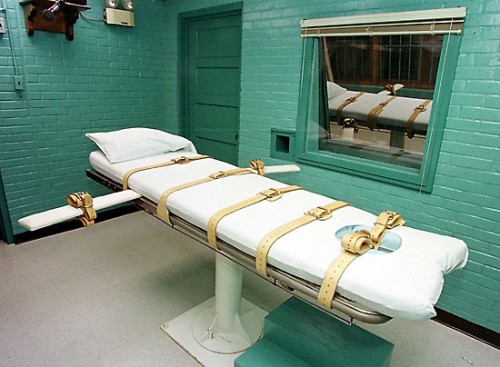

By Melinda Kukaj
DALLAS, TX – Brian Wharton, a retired detective, provides breaking insight through The Dallas Morning News of Robert Roberson’s wrongful conviction, which ultimately resulted in a death penalty sentence for Roberson.
Wharton, a former police officer in Palestine, Texas, for 14 years, writes, “I was the supervising detective, investigating and providing oversight in a case where Robert Roberson was accused of shaking his 2-year-old daughter, Nikki, to death. I testified for the prosecution and helped send Roberson to death row in 2003.”
During this investigation, Wharton reported that “investigators found no sign of violence in the home where Nikki had collapsed, and she did not look like she had been beaten. But after a CAT scan of her head, we were given three words: ‘shaken baby syndrome.’”
Wharton added, “as an investigator, I deferred to the expert knowledge of a pediatrician and medical examiner in Dallas and followed their lead in explaining what then seemed inexplicable.”
However, because of this stance, Wharton explained in the Morning News piece that Roberson was the prime suspect, so all other potential offenders or potential causes of death were therefore eliminated.
Explained Wharton, “in 2002 when Roberson was arrested, the medical community seemed united in thinking that a child with Nikki’s set of internal symptoms must have been violently shaken or possibly struck against a hard surface, most likely by the last person with the child when she collapsed.”
Twenty years later, Wharton said he began to doubt this conviction, going so far as to state, “I have thought that something went very wrong in Roberson’s case and feared that justice was not served. If there is no movement to correct this injustice, I fear myself and others will carry our guilt eternally.”
What led Wharton to believe this conviction was wrongful was the reexamination of facts of the case that were not fully brought to light during the investigation.
For instance, according to Wharton, “a re-examination of the autopsy by experts has shown that Nikki had severe pneumonia, something that was not shared with us during the investigation. She was also taking prescribed medicines that are no longer given to children her age because they can cause fatal breathing problems.”
Wharton added that “now it is recognized that many naturally occurring diseases that cause oxygen deprivation, including pneumonia, as well as short falls with a head impact, can cause the same set of internal conditions that Nikki had.”
Roberson’s case is not unique, Wharton said, adding there was another post-conviction shaken baby case in the same state where Texas conceded that the convicted man should receive a brand new trial. This case, as well as Roberson’s, were both close in years, early 2000s, as well as the fact that both cases relied on shaken baby syndrome, which is now rejected as being universally medically sound, said Wharton.
Wharton states that “over two decades later, the shaken baby hypothesis has been discredited and accused caregivers have been exonerated or granted new trials.”
According to the National Registry of Exonerations “there have been at least 32 exonerations of those wrongfully convicted under the shaken baby hypothesis,” said Wharton, adding, “I believe Roberson is the only person currently on death row in the United States because of a conviction based on this discredited science.”
Additionally, Wharton notes how new information was discovered post trial, such as the fact that Roberson has autism, which explained why he appeared “emotionless and flat.”
Wharton in the Dallas Morning News states how a nurse said Nikki, Roberson’s child was sexually abused, but no one else, including Wharton himself, report any signs of sexual abuse. Yet Wharton notes that this piece of information was noted in the trial without any corroborating evidence.
Wharton wrote he is “asking for those who care deeply about justice to urge another look at this case. Objectively, considering all the questions that have been raised and how science has evolved since 2003. It would be a terrible legacy for all of us to be associated with executing an innocent man based on a rush to judgment and bad science.”
Though there is no execution date set, according to Wharton, he said the urgency to act accordingly is clear.